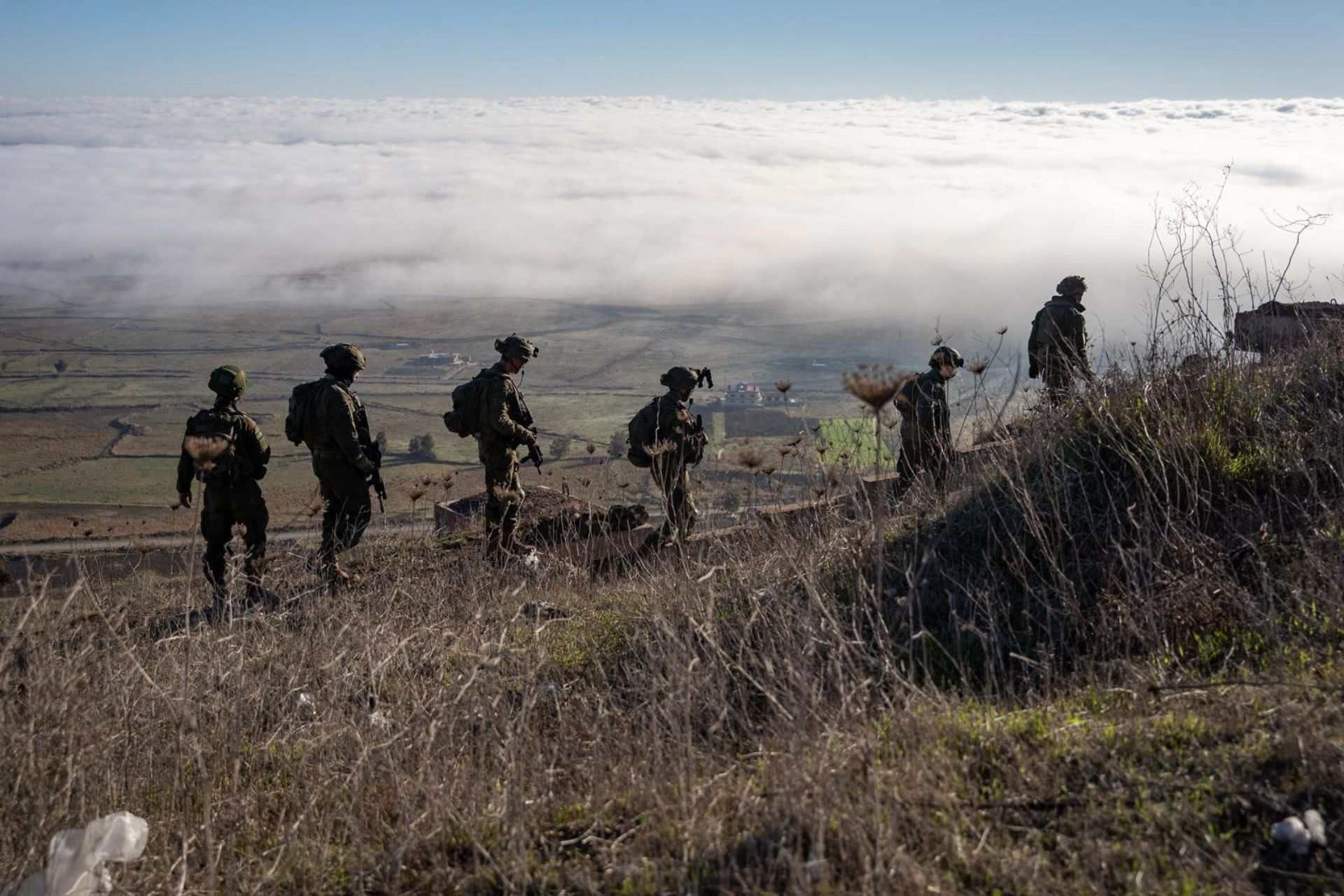Breaking News
Analysis: Could Tensions Between Israel and Türkiye Escalate Into Conflict?.
In a report published on January 6, the Nagel Committee, composed of security and defense experts, highlights a potential risk of confrontation between Israel and Turkey. According to the report, Ankara's ambition to restore its regional influence, reminiscent of its Ottoman-era dominance, raises concerns in an already complex Middle Eastern context. The report, as cited by The Jerusalem Post, emphasizes the potential threat posed by Syrian factions supported by Turkey. These groups, acting as proxy forces, are described as a "significant and powerful" challenge that, according to the report, could even surpass the threat posed by Iran, traditionally considered Israel's primary adversary.

Israeli Brigade Engages in Defensive Operations at Strategic Positions in Syria (Picture source: IDF)
The report notes that Turkish President Recep Tayyip Erdogan has pursued an assertive regional policy aimed at re-establishing Turkey's influence in strategic areas. This approach is particularly evident in Syria, where Ankara actively supports armed groups under the Syrian National Army. Due to their proximity and operational flexibility, these factions operating near Israel's borders are viewed by the report as a potential tool for indirect military pressure on Israel.
The Golan Heights, a disputed territory, is highlighted as a focal point of rising tensions. Israel has reinforced its military presence in the area, which it describes as a defensive measure following the collapse of the Assad regime. However, Prime Minister Benjamin Netanyahu's statement that the Golan will "forever remain" part of Israel has reportedly drawn criticism from Ankara. According to the report, Erdogan has responded with repeated warnings, including references to possible military actions and the use of Syrian factions aligned with Turkish interests.
The Nagel Committee compares the threats posed by Turkey and Iran. While Iran remains a major concern for Israel due to its nuclear program and support for groups like Hezbollah, the report describes the Turkish-backed Syrian factions as an immediate and localized risk. It further notes that Turkey’s regional assertiveness could increase instability, adding to the unpredictability of the Middle East's geopolitical landscape.
To address these challenges, the report recommends a significant increase in Israel’s defense budget. Specifically, it proposes an additional 15 billion shekels (approximately €4 billion) annually over the next five years, for a total of 75 billion shekels (€20 billion). This funding, according to the committee, would allow Israel to enhance its military capabilities through acquisitions such as additional F-15 fighter jets, refueling aircraft, drones, and satellites, aimed at improving long-range strike and surveillance capabilities.
The report also emphasizes the need to modernize Israel's air defense systems, suggesting additional investments in existing technologies such as the Iron Dome, David’s Sling, and Arrow, alongside the newly operational Iron Beam laser system. Another priority highlighted in the report is border security, including the construction of a fortified barrier in the Jordan Valley. While diplomatically sensitive, this measure is described as essential for mitigating infiltration risks from armed groups or Turkish-aligned factions.
Prime Minister Netanyahu has acknowledged the report’s recommendations, noting the importance of adapting to changes in the Middle East. "While Iran remains our primary concern, other actors are reshaping the region. We must be prepared to address these evolving dynamics," he stated. Defense Minister Israel Katz has also stressed the urgency of modernizing Israel’s military capabilities.
The report outlines the tensions between Israel and Turkey, which reflect broader shifts in the region's balance of power. Ankara’s regional ambitions, coupled with Israeli preparations to address potential challenges, underscore the evolving complexity of Middle Eastern geopolitics. While the report highlights the possibility of escalation, it calls for vigilance and strategic investment to ensure Israel’s security in an increasingly unpredictable environment.
























